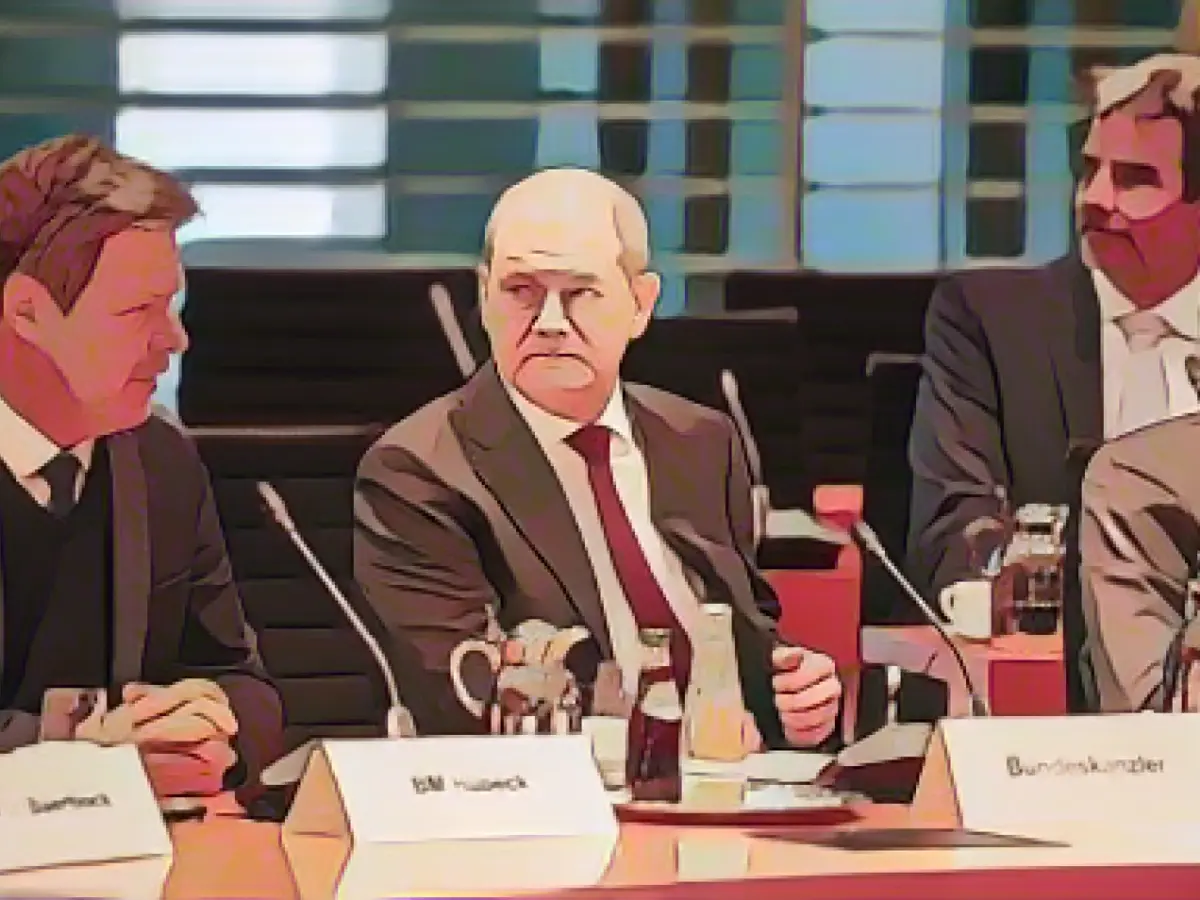Budget Brawl: The 2024 Dispute between Germany's Leaders
The German government has been battling over the upcoming year's budget since midweek, with ongoing talks between Chancellor Olaf Scholz (SPD), Economics Minister Robert Habeck (Greens), and Finance Minister Christian Lindner (FDP) showing no signs of concluding, as reported by dpa. Despite expectations of post-cabinet meeting discussions on Wednesday, Green Party Chairwoman Ricarda Lang hinted a cabinet approval of the new budget draft might not occur that day. But a rapid political resolution is imminent, she stated in an interview with BR.
Innovative budget referrals are under consideration. The aspiration to approve the budget prior to the year's end was a goal of the traffic light coalition internally, but they are now considering a resolution by circular, which means a decision in writing. The Bundestag and Budget Committee will review the issue once it reaches them. A budget week before Christmas and potential Bundesrat approval on December 22 or a December Budget Committee discussion followed by adopted budget in January are possibilities.
Lindner's Point of View
Lindner attributes a 17 billion euro budget deficit for 2024 to factors such as the Karlsruhe budget ruling, less electricity tax, and increased basic income support. As negotiations progress, potential savings across various sectors, along with the resumption of the debt brake suspension in 2024, are under deliberation. Finding solutions to these challenges is crucial to bypassing a national crisis while facilitating the country's modernization and progress towards a climate-neutral economy.
Priority for the Vulnerable
Emphasizing the importance of saving resources for the most vulnerable households to avert a crisis, Robert Habeck, Greens Co-Leader, underlines the need for budget cuts. Meanwhile, Lindner maintains tax hikes shouldn't be part of the solution and sees room for savings in social spending, accounting for 45% of the federal government's budget.
Enrichment Insights
In recent months, the German government's budget and debt brake negotiations have been marked by complexity, with key issues consisting of the debt brake and tackling potential budget gaps. Here are the main points:
- Debt Brake Debate: The debate around the debt brake, or Schuldenbremse, is centered on whether to maintain limitation, reduce it, or loosen it to facilitate investment spending and social welfare benefits. SPD, Greens, and BSW advocate for loosening, while CDU/CSU, FDP, and AfD support maintaining or reducing to preserve fiscal rules and reduce government consumption.
- Budget Gap and Expenditure Needs: German government faces significant challenges in balancing its budget due to high defense spending, infrastructure investments, and decarbonization efforts.
- Economic Policies: Reducing bureaucracy and cutting energy costs are major campaign issues with the CDU/CSU and FDP emphasizing reducing corporate tax rates, while the SPD and Greens focus on direct investment incentives and tax relief for employees.
- Immigration and Economy: Immigration policies are crucial, with CDU/CSU, FDP, AfD, and BSW advocating for stricter immigration stances compared to SPD, Greens, and Die Linke.
- Coalition Negotiations: After the election on February 23, 2025, the most likely coalition combinations including CDU/CSU or SPD or the Greens could prompt reforming the debt brake, addressing immediate investment needs, and ensuring fiscal stability.
- Investment Needs: Germany faces substantial investment needs in areas like education, research and development, digitization, and pension expenditures, with the country aiming to achieve climate neutrality by 2045.
- Fiscal Policy Challenges: Faced with tax cuts, increased defense spending, and infrastructure investments, Germany must navigate between relying on debt financing to preserve fiscal stability and its adverse consequences such as pushing up interest rates, crowding out private investment, and igniting inflation.








